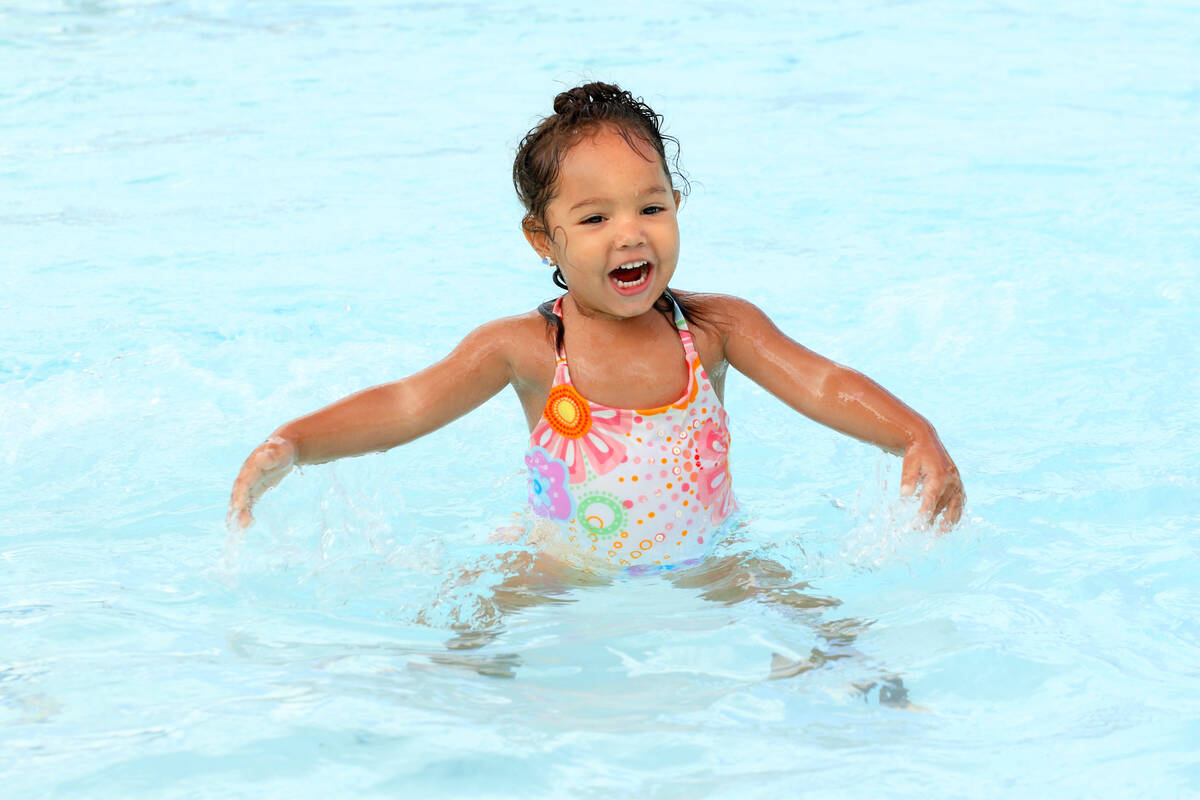Ask the Pediatrician: What is the best 1st sport for kids?
I always tell parents that, for many reasons, swimming should be the first sport a child learns.
Swimming is a fun, relaxing activity that fuels brain health and builds strong bodies. It’s great for growing children, since learning to move in the water improves coordination and flexibility. With indoor pools, swim clubs and water fun parks in many communities, families often enjoy swimming year-round.
But a more important reason I urge parents to enroll their kids in swim lessons — well before other sports such as T-ball, basketball and soccer — is that beyond the fun and fitness it provides, swimming is an essential life skill that can help protect your child from drowning.
Drowning is the No. 1 cause of death among children ages 1 to 4. But research shows that teaching them to swim early in life is a key layer of prevention that can help prevent tragedies.
A harrowing experience
Drowning can happen in seconds, and it’s often silent. My family knows firsthand how quickly a child can go under, whether it is swimming time or not.
When my son was a toddler, we moved into a home with a backyard pool. As parents, we talked extensively about water safety and the need for constant supervision. But one afternoon when we were outside, my son tumbled into the pool and went under.
“It happened right in front of my eyes,” my husband remembers. “I was only a few feet away, but it only took a split second for him to fall in.”
He pulled our son out by his ankles, and we were so relieved to find he was all right. Still, I was shaken. I worked in a regional hospital where young victims of water submersion came in all the time, and I knew how easily my son could have been permanently injured or even died that day.
Five basic water skills
The goal here isn’t to shape every child into a future Olympic swimmer. What kids really benefit from is an early start in building the five basic water skills that prevent drowning and other serious water-related injuries.
The American Red Cross offers guidance on safety, noting that people of all ages should be able to:
— Step or jump into water that goes above their head.
— Come back to the surface and float or tread water.
— Turn around in a full circle and find a way out of the water.
— Swim at least 25 yards to the exit point.
— Climb out without help, even if there is no ladder.
When to get started
According to the American Academy of Pediatrics, for many children, swim lessons can start as early as 12 months. Children develop at different rates, so there’s no hard-and-fast rule about when they should learn to swim. Emotional maturity, physical development and any special limitations will all come into play. Talk with your pediatrician about water safety and ask for advice on when it’s best to begin.
Don’t feel pressured to start lessons before your child’s first birthday, since infants can’t raise their heads out of the water well enough to develop swim breathing techniques. Even so, a water play class will get your little one accustomed to being in the pool, so if it seems like a fun option, go for it! You can follow up with formal lessons later on.
By age 4, nearly all children are ready for classes that help them build confidence and water safety skills. They will learn to float, tread water and find an exit point. By age 5 or 6, most can master basic swim strokes like the front crawl.
Kids with special needs
Some parents worry that their child can’t learn to swim alongside other kids. For example, if your child has autism, you might feel reluctant to start swim lessons. These concerns are understandable, but keep in mind that children with autism spectrum disorder are much likelier to drown or suffer water-related injuries than their peers. Risks for children with Down syndrome and other developmental conditions can be high, too — which makes water safety a must.
The good news is swimming can be very beneficial for special-needs kids. As they gain skill and confidence moving in the water, they may achieve better coordination, balance, muscle tone and stress relief. Many swim schools have sessions designed for special-needs children, taught by trained instructors with specialized skills. Ask your pediatrician and fellow parents for recommendations.
Dr. W. Steen James is a member of the American Academy of Pediatrics, a practicing pediatrician for nearly 40 years and the founder of Pediatrics Village, P.C. in Peachtree City, Georgia.


















